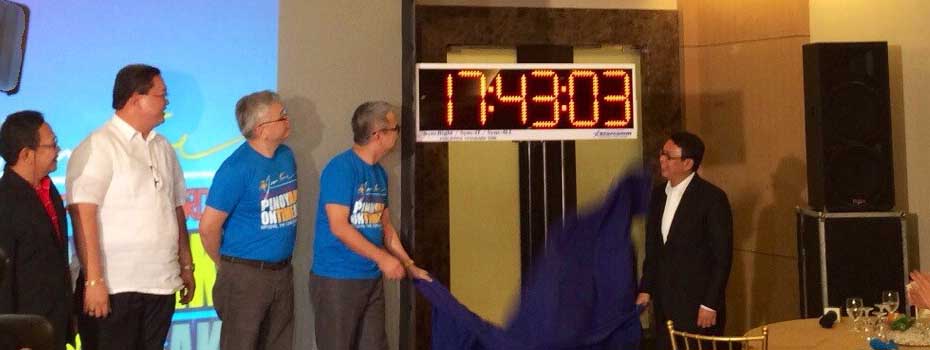
MANILA, Philippines – Department of Trade and Industry (DTI) Secretary Adrian S. Cristobal Jr. emphasized the need to raise Philippine competitiveness by aggressively pursuing measures and policies to facilitate ease of doing business.
According to Cristobal, DTI is committed to support MSMEs to make them globally competitive. The first step is to make it easy for the MSMEs to set up and comply with government requirements.
MSMEs constitute the bulk of Philippine businesses and are considered key drivers of growth and employment generation.
Earlier this year, Cristobal announced that the Ease of Doing Business Task Force (EoDB) will pursue implementation of the three (3) steps in three (3) days for business registration.
“Streamlining the processes has always been a top priority of the government. We have been making significant progress in our commitment to reduce the process from 16 steps and 29 days in 2015, down to 6 steps and 8 days in 2016, and further to 3 steps and 3 days,” he said.
The 3-steps procedure:
Step 1: Register with the Securities and Exchange Commission (SEC), Bureau of Internal Revenue (BIR), Social Security System (SSS), Philippine Health Insurance Corporation (PhilHealth), and Pag-IBIG through the Integrated Business Registry System (IBRS);
Step 2: Obtain barangay clearance and mayor’s permit in just one (1) or two (2) days ; and Step 3: Review documents and pay fees.
The IBRS streamlines the process for companies to buy and use point-of-sale cash register machines, in lieu of printing of receipts and invoices at BIR-accredited print shops. From April 2015 to March 2016, a total 21,771 applications has been processed by the IBRS within the day. For convenience of businesses, DTI will soon make available in its premises the IBRS.
Cristobal also cited the pioneering efforts of the Quezon City Local Government for quick registration of businesses in less than three days. Through its Business One Stop Shop (BOSS), Quezon City streamlined its 12-step business registration procedure to just 3 steps as part of the government’s campaign. “Building on the experience of Quezon City ’s local government units (LGU), we will continue to advocate for other LGUs to streamline business registration as well,” he said.
In particular, the Nationwide Streamlining of Business Permits and Licensing Systems (BPLS) Program aims to reduce the stress and cost of doing business in the country. The BPLS is a joint undertaking of the DTI and the Department of the Interior and Local Governance (DILG) launched in 2011 to improve business licensing processes and make starting a business easier.
As of December 2015, 1,456 out of 1,634 LGUs have completed streamlining while a total of 1,403 out of 1,518 (92%) were able to comply with BPLS standards based on the submitted quarterly report from DILG Local Government Academy. These standards include the use of a unified form and the reduction of the number of signatories in the permit is reduced to only two: the City Mayor or City Administrator and/or Business Permits and Licensing Office (BPLO) Head.
The DTI has been working with the National Competitiveness Council (NCC) and the EoBD Task Force to streamline regulatory procedure including simplifying documentary requirements and implementing regulatory reforms to start a business in the Philippines.
Over the past six years, the Philippines has posted some of the biggest improvements globally in the World Economic Forum Global Competitiveness Report (+38), World Bank – International Finance Corporation (IFC) Doing Business Report (+45), Heritag e Foundation’s Economic Freedom Index (+39), and Transparency International Corruption Perception Index (+49).











Leave a Reply